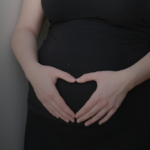Postpartum depression (PPD) is a relatively common problem, affecting between 10% and 15% of women after delivery. Although it is difficult to reliably predict which women in the general population will experience postpartum mood disturbance, it is possible to identify certain subgroups of women who are more vulnerable to postpartum affective illness. Women who have had one episode of postpartum depression have about a 50% chance of experiencing another episode of PPD after a subsequent pregnancy. The extent to which a history of depression (prior to pregnancy) influences risk is less clear, but some studies indicate that between 30% and 50% will suffer from recurrent depression during the postpartum period. Several investigators have recently explored the potential efficacy of prophylactic interventions in these populations of women at risk.
For women with histories of postpartum depression, Wisner and colleagues have described a beneficial effect of prophylactic antidepressant treatment, either tricyclic antidepressants (TCAs) or selective serotonin reuptake inhibitors (SSRIs), administered after delivery in a group of 23 women. However, a subsequent randomized, placebo-controlled study from the same group did not demonstrate a positive effect in women treated prophylactically with nortriptyline. The authors hypothesized that nortriptyline may be less effective than SSRIs for the prevention and/or treatment of postpartum depression.
In a recent study published in the American Journal of Psychiatry, Wisner and colleagues presented new data suggesting the efficacy of SSRIs for the prevention of PPD. In a double blind, placebo-controlled study, 22 women (ages 21 to 45 years) who had histories of postpartum depression were randomized to receive treatment with either sertraline (Zoloft) of placebo. Dosing was 50 mg a day for the first four weeks, 75 mg for week 5 through week 17, then a tapering over the next three weeks for a total of 20 weeks of treatment. The women began taking the drug an average of 15 hours after delivery. Of the 14 women who received Zoloft, only one woman had recurrence of depression. In contrast, four (50%) of the eight women in the placebo group developed PPD. Two women receiving active drug became depressed while tapering off of the agent.
These data suggest that postpartum depression, one of the most commonly encountered complications of pregnancy, may be preventable. Although there have been some concerns that postpartum depression may be more refractory to treatment than non-puerperal depression, these data indicate that women respond well to relatively low doses of antidepressant. The optimal duration of treatment has yet to be determined, as there was evidence of recurrent illness in several women who tapered medication after four months of treatment. Given the data supporting the efficacy of other serotonergic antidepressants, including fluoxetine (Prozac) and venlafaxine (Effexor), in the treatment of postpartum depression, there is reason to believe that these agents may also be effective in preventing postpartum depression. While SSRIs may be beneficial for reducing the risk of recurrent illness in women with histories of PPD, we need now to assess whether this intervention may prevent PPD in other groups of women, specifically those women with histories on depression prior to pregnancy.
Ruta Nonacs, M.D., Ph.D.


![By Vera Kratochvil [Public domain], via Wikimedia Commons](https://womensmentalhealth.org/wp-content/uploads/2015/06/Mother_Kissing_Baby-150x150.jpg)




Leave A Comment